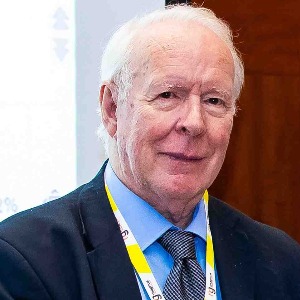Squamous Cell Carcinoma
Squamous Cell Carcinoma (SCC) is a form of skin cancer that originates from the epidermal layer of the skin. It is the second most common form of skin cancer, accounting for up to 20% of all cases. SCC typically appears as firm, red nodules that can be scaly and may crust, bleed, or ulcerate. It is most commonly found on areas of the skin that are frequently exposed to the sun, such as the face, ears, neck, and arms. The exact cause of SCC is unknown, however it is thought to be linked to long-term exposure to ultraviolet (UV) radiation from the sun or tanning beds. Other factors that may increase the risk of developing SCC include a weakened immune system, chronic skin irritation, human papillomavirus (HPV) infection, and certain chemical exposures. Treatment for SCC typically involves surgical removal of the tumor. However, if the tumor is large, or if it has spread to other areas of the body, additional treatments such as radiation therapy, chemotherapy, or immunotherapy may be necessary. In some cases, doctors may also recommend lifestyle changes such as wearing sun protective clothing and using sunscreen to help lower the risk of recurrence. The prognosis for SCC is generally good, especially for those with early diagnosis and treatment. However, if the tumor is not treated early, it can spread to other areas of the body, making it more difficult to treat. Therefore, it is important to remain vigilant and visit your dermatologist regularly for skin cancer screenings.

David Geoffrey Gillam
Queen Mary University of London, United Kingdom
Christopher Turner
Spacemark Dental, United Kingdom




Title : Evaluating hygienist follow up for head and neck oncology patients in secondary care: Results from a two cycle audit
Peter Basta, Newcastle Dental Hospital, United Kingdom
Title : Atypical facial pain unravelled
Christopher Turner, Spacemark Dental, United Kingdom
Title : New treatment of temporomandibular disorder through muscle balance and muscle regeneration by activation of quiescent muscle stem cells( satellite cells) with mitochondrial dynamics
Ki Ji Lee, National Reserach Foundation & Busan Medical University, Korea, Republic of
Title : MRONJ and ORN: Referral or management in primary care? Navigating guidelines in the context of long waiting lists
Alisha Sagar, NHS England, United Kingdom
Title : Managing the unexpected: An Insight into supernumerary teeth
Bahar Gharooni Dowrani, Guy's and St Thomas' NHS Foundation Trust, United Kingdom
Title : Laxative prescribing for post operative head and neck cancer patients at Derriford Hospital
Pui Sze Kylie Li, Cardiff and Vale University Health Board, United Kingdom